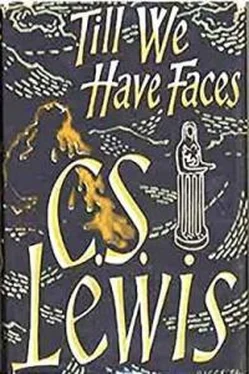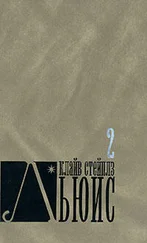He listened to it all very diligently but said nothing when I had ended. I had to draw his answer out of him.
“How do you read it all, Bardia?”
“Lady,” says he, “it’s not my way to say more than I can help of gods and divine matters. I’m not impious. I wouldn’t eat with my left hand, or lie with my wife when the moon’s full, or slit open a pigeon to clean it with an iron knife, or do anything else that’s unchancy and profane, even if the King himself were to bid me. And as for sacrifices, I’ve always done all that can be expected of a man on my pay. But for anything more—I think the less Bardia meddles with the gods, the less they’ll meddle with Bardia.”
But I was determined to have his counsel.
“Bardia,” I said, “do you think my sister is mad?”
“Look, Lady,” he answered, “there at your very first word you say what’s better unsaid. Mad? the Blessed, mad? Moreover, we’ve seen her and anyone could tell she was in her right mind.”
“Then you think there really was a palace in the valley though I couldn’t see it?”
“I don’t well know what’s really , when it comes to houses of gods.”
“And what of this lover who comes to her in the dark?”
“I say nothing about him.”
“Oh, Bardia—and among the spears men say you’re the bravest! Are you afraid even to whisper your thought to me? I am in desperate need of counsel.”
“Counsel about what, Lady? What is there to do?”
“How do you read this riddle? Does anyone really come to her?”
“She says so, Lady. Who am I to give the Blessed One the lie?”
“Who is he?”
“She knows that best.”
“She knows nothing. She confesses she has never seen him. Bardia, what kind of a lover must this be who forbids his bride to see his face?”
Bardia was silent. He had a pebble between his thumb and forefinger and was drawing little scratches in the earth.
“Well?” said I.
“There doesn’t seem to be much of a riddle about it,” he said at last.
“Then what’s your answer?”
“I should say—speaking as mortal man, and likely enough the gods know better—I should say it was one whose face and form would give her little pleasure if she saw them.”
“Some frightful thing?”
“They called her the Bride of the Brute, Lady. But it’s time we were riding again. We’re not much better than half–way home.” He got up as he spoke.
His thought was not new to me; it was only the most horrible of the guesses which had been jostling and wrangling in my head. But the shock of hearing it from his lips lay in this, that I knew he had no doubt of it. I had come to know Bardia very well by now, and I could clearly see that all my difficulty in drawing out his answer came from his fear to say the thing and not from any uncertainty. As he had said, my riddle was no riddle to him. And it was as though all the people of Glome had spoken to me through him. As he thought, so, doubtless, every prudent, god–fearing man of our nation and our time would think too. My other guesses would not even come into their minds; here was the plain answer, clear as noonday. Why seek further? The god and the Shadowbrute were all one. She had been given to it. We had got our rain and water and (as seemed likely) peace with Phars. The gods, for their share, had her away into their secret places where something, so foul it would not show itself, some holy and sickening thing, ghostly or demonlike or bestial—or all three (there’s no telling, with gods)—enjoyed her at its will.
I was so dashed that, as we continued our journey, nothing in me even fought against this answer of Bardia’s. I felt as, I suppose, a tortured prisoner feels when they dash water in his face to rouse him from his faint, and the truth, worse than all his fantasies, becomes clear and hard and unmistakable again around him. It now seemed to me that all my other guesses had been only self–pleasing dreams spun out of my wishes, but now I was awake. There never had been any riddle; the worst was the truth, and truth as plain as the nose on a man’s face. Only terror would have blinded me to it so long.
My hand stole to the sword–hilt under my cloak. Before my sickness, I had sworn that, if there were no other way, I would have killed Psyche rather than leave her to the heat or hunger of a monster. Now again I made a deep resolve. I was half frightened when I perceived what I was resolving. “So it might come even to that,” my heart said; even to killing her (Bardia had already taught me the straight thrust, and where to strike). Then my tenderness came over me again, and I cried, never more bitterly, till I could not tell whether it was tears or rain that had most drenched my veil. (It was settling down to steadier rain as the day went on.) And in that tenderness I even asked myself why I should save her from the Brute, or warn her against the Brute, or meddle with the matter at all. “She is happy,” said my heart. “Whether it’s madness or a god or a monster, or whatever it is, she is happy. You have seen that for yourself. She is ten times happier, there in the Mountain, than you could ever make her. Leave her alone. Don’t spoil it. Don’t mar what you’ve learnt you can’t make.”
We were down in the foothills now, almost (if one could have seen through the rain) in sight of the house of Ungit. My heart did not conquer me. I perceived now that there is a love deeper than theirs who seek only the happiness of their beloved. Would a father see his daughter happy as a whore? Would a woman see her lover happy as a coward? My hand went back to the sword. “She shall not,” I thought. Come what might, she should not. However things might go, whatever the price, by her death or mine or a thousand deaths, by fronting the gods “beard to beard” as the soldiers say. Psyche should not—least of all, contentedly—make sport for a demon.
“We are king’s daughters still,” I said.
I had hardly said it when I had good cause to remember, in a different fashion, that I was a king’s daughter, and what king’s. For now we were fording the Shennit again and Bardia (whose mind was ever on next things) was saying that when we had passed the city, and before we had reached the palace, I had best slip off the horse and go up that little lane—where Redival first saw Psyche being worshipped—and so through the gardens and into the women’s quarters by the back way. For it was easy to guess how my father would take it if he found that I (supposed too sick to work with him in the Pillar Room) had journeyed to the Holy Tree.
It was nearly dark in the palace, and as I came to my chamber door a voice said in Greek, “Well?” It was the Fox, who had been squatting there, as my women told me, like a cat at a mouse–hole.
“Alive, Grandfather,” said I, and kissed him. Then, “Come back as soon as you can. I am wet as a fish and must wash and change and eat. I’ll tell you all when you come.”
When I was re–clothed and finishing my supper, his knock came to the door. I made him come and sit with me at table and poured him drink. There was no one with us but little Poobi, my dark–skinned maid, who was faithful and loving and knew no Greek.
“You said alive ,” the Fox began, raising his cup. “See. I make a libation to Zeus the Saviour.” He did it Greek fashion with a clever twist of the cup that lets fall just one drop.
“Yes, Grandfather, alive and well and says she’s happy.”
“I feel as if my heart would crack for joy, child,” said he. “You tell me things almost beyond belief.”
“You’ve had the sweet, Grandfather. There’s sour to follow.”
“Let me hear it. All is to be borne.”
Читать дальше











